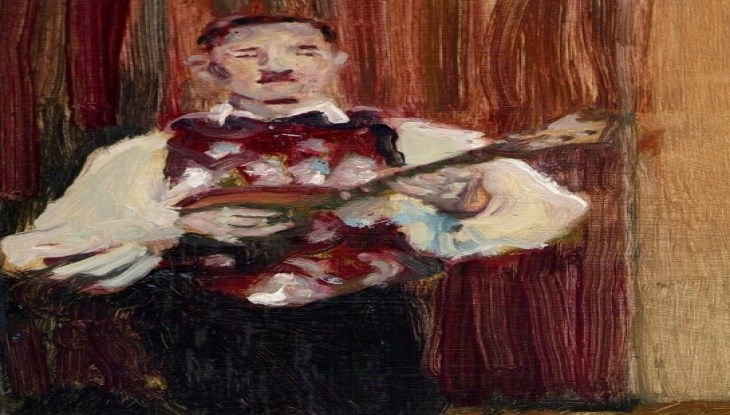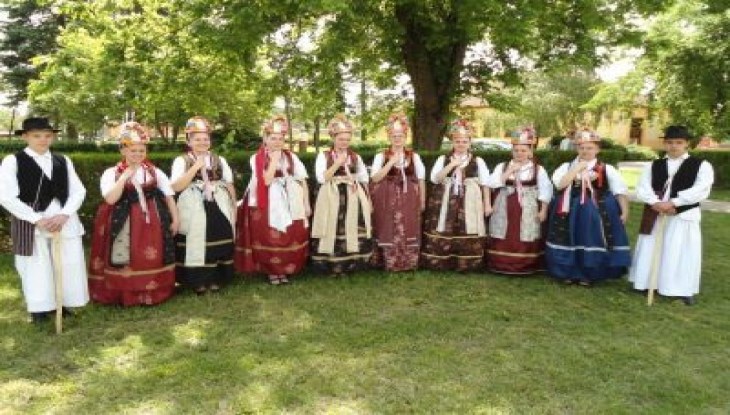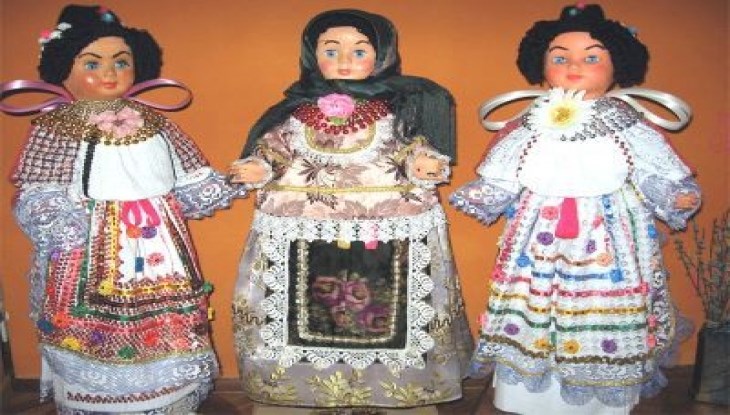Croatian Minority in the Republic of Serbia
Croats have been living in the area of the present day Republic of Serbia for centuries. Majority of them have settled down in the north Autonomous province of Vojvodina, but also in Belgrade and in central Serbia. Based on the last census of 2011 the total number of Croats living in Serbia is 57,900. The number is lower by almost 13,000 compared to the census of 2002 when 70,602 citizens of Serbia declared themselves as Croats.
Political and legal status of national minorities in Serbia is regulated by the Constitution of the Republic of Serbia. Constitutional Charter on the Rights and Liberty of National Minorities (adopted by the Assembly on February 26, 2002), the Croat national minority was guaranteed, for the first time ever, the status of minority. The Croatian language is an official language in the Assembly of the Autonomous province of Vojvodina and in the municipality of Subotica.
Central electoral institution of the Croat national minority The Croatian National Council in the Republic of Serbia based in Subotica represents Croatian national minority in the fields related to official language use, education, information dissemination and culture. The Croatian National Council (HNV) participates in decision making process or makes decisions about the issues from aforementioned fields and establishes the institutions related to those fields. The president of HNV is Jasna Vojnić.
The Democratic Alliance of Croats in Vojvodina (hereinafter DSHV) witht the seat in Subotica was established in 1990. At the 2016 elections the president of the Alliance Tomislav Žigmanov won a seat to the National Assembly of the Republic of Serbia (coalition with Democratic party and several other parties gathered around Democratic party).
The Agreement on the Protection of the Croatian minority in the Republic of Serbia and the protection of the Serbian minority in Croatia was signed in 2004. This Agreement greatly facilitates in exercising the minority rights of Croats in the Republic of Serbia and Serbs in the Republic of Croatia. On the basis of the signed Agreement, the Intergovernmental Mixed Committee (MMO) for the protection of minorities was established by the Government of the Republic of Serbia and the Croatian Government. Its eighth session was held on 12 and 13 March, 2019 in Zagreb and Pakrac.
Based on the Law on Relationships between the Republic of Croatia and Croats Abroad the Government of the Republic of Croatia adopted the Decision on Establishing and Appointing the Members of the Council of the Government of Croatia for Croats Abroad, which held its constituting session in July, 2022, where the representative of the Croatian minority in the Republic of Serbia at the third Council convocation are Jasna Vojnić, Tomislav Žigmanov and Darko Vuković.
The Croatian language has been taught since 2002/2003 school year in five primary schools (Subotica, Monoštor, Đurđin, Mala Bosna and Donji Tavankut) and since 20006/2007 in three high schools in the area of the town of Subotica. Croatian language as a school subject in Vojvodina is taught mostly by teachers from the Republic of Croatia assigned by the Ministry of Science and Education and by the local teachers in regular schools. In some schools in Vojvodina elements of national culture are incorporated in the Croatian language .teaching.
Pre-school minority education is organized in four kindergartens where Croatian language is taught - in Subotica, Donji Tavankut, Mala Bosna and in kindergarten “Naša radost“.
Lectures in the Croatian language are organized at the Theological-catechetial institute of Diocese of Subotica.
After a lot of efforts made and activities undertaken, academic course of the Croatian language at the University of Novi Sad started in 2018, and it is planned to open the Department of the Croatian language at the Faculty of Philosophy in Novi Sad.
The newspaper publishing house “Hrvatska riječ" is the first professional institution of Croats living in Serbia which publishes a political weekly by the same name. It also publishes books by domestic authors. Besides the weekly “Hrvatska riječ" DSHV publishes “Glas ravnice“, and Croatian cultural and artistic society (HKUD) “Vladimir Nazor“ from Sombor publishes quarterly “Miroljub“. Catholic church publishes a monthly magazine in Croatian language “Zvonik“ and an annual magazine “Subotička danica“.Croatian Heritage Foundation (Matica hrvatska) in Subotica publishes the magazine dedicated to culture and literature “Klasje naših ravni“. Also, a monthly magazine “Glasnik Pučke kasine 1878“ is published.
Editorial board in Croatian started operating at radio Subotica in 1998 but due to a privatization process it stopped operating. At the beginning of March 2011 a television editorial board in Croatian was organized at RTV Vojvodina. The programme broadcast in Croatian language at radio stations is produced mainly by private production houses, such as CRO info from Subotica.
The Institute for the Culture of Vojvodina Croats is a professional institution founded in 2008. Since then it has worked on preservation, improvement and development of the culture of the Croatian community in Vojvodina. There are around 40 associations operating in Serbia. Among the most important and influential associations are: HKC "Bunjevačko kolo” in Subotica; HKD "Matija Gubec" in Tavankut; HKD "Vladimir Nazor" in Sombor, HKC "Srijem" in Sremska Mitrovica; HKPD “Jelačić” in Petrovaradin,Croatian Academic Society "HAD" in Subotica; KUD "Bodrog" in Bačka Monoštor.
Catholic church has a significant role in the life of Croats from Vojvodina. Diocesan classical grammar school “Paulinum” and the Theological-catechetial institute are within its competence, as well as Radio Marija which broadcasts programmes in Croatian. Some priests contribute actively to the development of the community. Children and youth camps are organized to promote and strengthen their faith but also their Croatian national identity.





